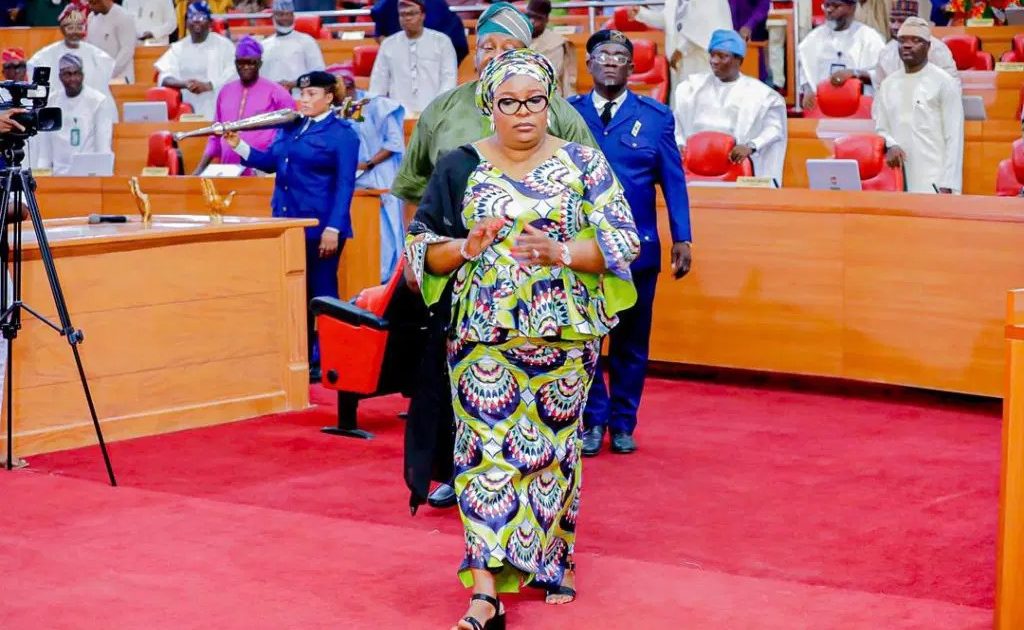The Rising Tide of Substance Abuse in Nigeria: A Call for Comprehensive Action
Substance abuse poses a significant threat to individuals and communities across Nigeria, impacting physical and mental health, economic productivity, and social cohesion. The pervasiveness of this issue demands a robust and multifaceted response involving legislative action, community engagement, and inter-agency collaboration. The Deputy Speaker of the Lagos State House of Assembly, Mojisola Meranda, has highlighted the urgency of addressing this crisis by advocating for a comprehensive review and implementation of the National Drug Law Enforcement Agency (NDLEA) Act. This call to action emphasizes the need for a strengthened legal framework to combat drug trafficking, enhance prevention efforts, and expand access to effective treatment and rehabilitation services.
Strengthening Legislation and Enhancing Enforcement:
A crucial element in tackling substance abuse is bolstering the existing legal framework to ensure it adequately addresses the evolving nature of the drug problem. The NDLEA Act, as the principal legislation governing drug control in Nigeria, needs to be thoroughly reviewed and updated to reflect current realities. This review should include provisions for stricter penalties for drug trafficking and distribution, particularly at the grassroots level, where vulnerable populations are often targeted. Furthermore, clear guidelines and protocols should be established for the identification, apprehension, and prosecution of individuals involved in drug-related activities. Strengthening law enforcement capacity through training, equipping, and providing adequate resources is essential for effective implementation of the revised NDLEA Act.
Empowering Communities and Fostering Collaboration:
Combating substance abuse cannot be solely the responsibility of law enforcement agencies. It requires a collaborative approach involving government agencies, community organizations, religious leaders, traditional rulers, educators, parents, and youth advocates. Empowering communities to take ownership of the problem and fostering a sense of collective responsibility is crucial for achieving sustainable solutions. This includes raising awareness about the dangers of substance abuse, providing accurate information, and promoting healthy lifestyles. Community-based programs can play a vital role in providing early intervention, support, and guidance to individuals at risk of or struggling with addiction.
Prioritizing Prevention and Expanding Access to Treatment and Rehabilitation:
The adage “prevention is better than cure” holds particularly true in the context of substance abuse. Investing in preventive measures, such as education, youth development, and community empowerment programs, can help steer individuals away from drug use and towards productive pathways. Early intervention programs are essential for identifying and supporting individuals who are exhibiting early signs of substance abuse. Expanding access to affordable and effective treatment and rehabilitation services is also critical. This includes providing detoxification services, counseling, and aftercare support to help individuals overcome addiction and reintegrate into society.
Inter-Agency Synergy and Collaboration:
Addressing the complex challenge of substance abuse requires seamless collaboration between various government agencies, including the NDLEA, Ministry of Health, Ministry of Education, Ministry of Youth and Sports Development, and law enforcement agencies. Sharing information, coordinating efforts, and pooling resources can maximize the impact of interventions. Collaboration with international organizations and partners can provide access to technical expertise, best practices, and funding opportunities. Regular communication and coordination among stakeholders are essential for ensuring a cohesive and effective response.
The Role of Public Awareness and Education:
Public awareness campaigns play a crucial role in educating communities about the dangers of substance abuse, reducing stigma, and promoting help-seeking behavior. These campaigns can utilize various platforms, including media, social media, community events, and educational institutions, to reach diverse audiences. Messages should be tailored to specific target groups, such as youth, parents, and community leaders, to ensure relevance and impact. Highlighting the positive stories of individuals who have recovered from addiction can inspire hope and encourage others to seek help.
Building a Drug-Free Future for Nigeria:
Combating substance abuse is a long-term commitment that requires sustained efforts and investment. By strengthening legislation, empowering communities, prioritizing prevention, expanding access to treatment, fostering inter-agency collaboration, and raising public awareness, Nigeria can make significant strides in addressing this critical issue. This collective effort will contribute to building a healthier, drug-free future for generations to come. The call by the Deputy Speaker of the Lagos State House of Assembly for a comprehensive review and implementation of the NDLEA Act is a positive step in this direction, highlighting the importance of a multifaceted and collaborative approach to tackling substance abuse in Nigeria.


